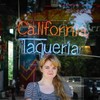
Advertisement
Pelican editors Hayden Dalziel and Kate Prendergast
Pelican: 2016 is looking like it's going to be madness. Every year is a bit bonkers, but this one seems especially so. The obscene response to the international asylum seeker crisis, the obstinacy of both sides of government on the issue of same-sex marriage, our will to fuck over future generations when it comes to climate change, the fact that shock jocks are still able to popularly vocalise statements such as "we need more stolen generations."At the end of the day though, there's never really any one "big issue." It's what we define. Whatever a student has a problem with, or invigorates them, or annoys them, or delights them: Everything is eligible. Kanye dropping a new album is always a thing.Are there any Perth-specific student issues?
The overall corporatisation of universities and student unions is starting to reveal itself as more of an issue and that situation is only going to get more shithouse as time goes on. In just the last few years our uni has gone from a fairly respectable (sort of) place to a corporate marketing hellscape.Student unions were at one point—uh, at least trying to be—truly representative of students, but now it's doubtful they can fight back against threats to higher education. Their original purpose of standing up for student interests has been lost.
Advertisement
Not even vaguely. I don't think it'd be a stretch to say we have the most apathetic elections on earth, and who can blame the voters? The only people running are those looking for a career in the major parties, and the only real issues talked about are questions like should there be a Subway on campus?
The Empire Times team. From left: Liam McNally, Eleanor Danenberg, and Simone Corletto.
Simone: In the lead up to the election, we'll be trying to publish political think-pieces that engage with the issues and remind people what's at stake.Liam: Looking at federal, state, and student politics in an effort to present the truth of how their policies and actions impact on student welfare.
Advertisement
Farrago team Sebastian Dodds, Caleb Triscari, Danielle Bagnato and Baya Ou Yang (answers supplied by Caleb Triscari)
The role of student media editors, as elected representatives, is undeniably to make sure their student body is aware of these issues. An issue which I've faced when heading the campus reporting section is being unable to ensure students are engaged with these issues.Any issues that affect students at Uni of Melbourne specifically?
The University of Melbourne has recently unveiled their Flexible Academic Programming or FAP plan. They've tried to rename it to "FlexAP" since realising FAP is an unfortunate name but it's too late, the deed is done. The working groups of FAP will look into the sizes of lectures, the reduction of face-to-face classes, and the casualisation of university staff.Do you think it will be a big year for activism?
I think we can count on it. We saw deregulation shelved last year but since then there have been proposals to determine whether the SSAF is paid on an annual basis, or to have student loans repaid by dipping into their superannuation.
Dircksey editor Kitty Turpin (left) with her editorial squad Rhys, Mae, and Sarah
Advertisement
Cutting the student start up scholarship, and pushing that $1000 per semester onto the HECS loan is a massive issue that I don't think enough students are informed about, especially the students ON Youth Allowance who receive this scholarship, which will now be considered a loan.So funding is a crucial issue?
Yeah. The WA government trying to decrease funding to student unions too. If this happened at ECU, Dircksey would cease to exist. Unions just do not have the funds to continue at all without their allocation of 50 percent of the Student Amenities and Services Fee. All of this has come about because university deregulation has been ruled out.Students who aren't out there searching for these facts think the fight has been won, but it hasn't. We need to keep informed, because the federal government and universities are keeping all these tactics on the down low to slip changes past the students until we're so deep into these restructures that we can't get ourselves out.
These answers were supplied by one of Honi Soit's 2016 editors Subeta Vimalarajah (right)
Changes to the tertiary education sector, the housing crisis and employment are key issues affecting us directly. Rental prices, particularly in the inner city, are ludicrous, and are a contributing factor to high rates of youth homelessness. Unpaid internships and employers exploiting student workers also continue to be a problem. Only recently the media published news about workers at 7-Eleven being paid less than a dollar an hour for their labour.Do you think students at Uni of Sydney are politically engaged?
Definitely! The University of Sydney has a radical history of student activism. Our student organisations are also blessed with a considerable amount of the money the university gets from the Student Services Amenities Fee so our SRC (Student Representative Council) has the means to support activism.Follow Kat on Twitter
